
UGANDA
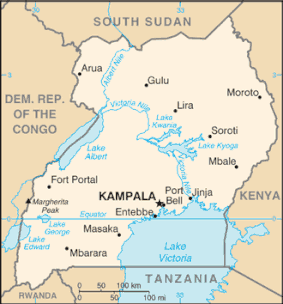
EMERGENCY CARE PRACTITIONER TRAINING PROGRAM
GEC’s flagship program is its two year train-the-trainer Emergency Care Practitioner (ECP) program. Over the past ten years, GEC has developed this innovative training program in emergency care at Nyakibale Hospital in rural, southwestern Uganda.
GEC employs a train-the-trainer model to provide advanced training in emergency care to nurses, in order to increase access to care where there are severe physician shortages. Nurses are more plentiful than physicians in rural Uganda, and training nurses is less expensive and time-intensive than training doctors. GEC educates new classes of ECPs who then become trainers themselves, creating a sustainable process for training more providers and reaching more patients.

Our emergency care curriculum combines classroom and clinical work to train the local staff to effectively and independently manage patients in the Emergency Department. The curriculum was developed by GEC affiliated physicians based on their experiences working at Nyakibale Hospital. The implementation of the curriculum has been carried out by GEC volunteers with strong support from other short-term volunteers. This training program is a two year graduated responsibility program employing a train-the-trainer model, meaning educational, clinical, and administrative responsibilities are transferred from GEC to local staff over time. At this time, nearly all clinical and didactic education is taught by senior trainees or graduated ECP staff, under supervision of GEC Program Directors and administrators.
NYAKIBALE HOSPITAL, RUKUNGIRI DISTRICT
Karoli Lwanga Hospital (aka Nyakibale Hospital) is located within the Rukungiri District in the southwest of Uganda, Africa. This area of the country is rural, and the hospital is a seven-hour drive from Kampala, Uganda’s capital. The nearest major city, Mbarara, is located about two hours away. The countryside is mountainous and the hospital is situated at an altitude of approximately 5,000 ft (comparable to Denver).
Nyakibale Hospital has grown from a modest health center in the late 1950s into a referral center for the Rukungiri District. It serves over 300,000 people, more than half of whom are under age 18. The district is very poor; one third of the residents have no access to clean water. The Hospital is staffed by four Ugandan physicians, three clinical officers, forty-eight nurses, and twelve midwives. There is also a nursing & midwifery training school onsite with approximately 130 nurses-in-training.
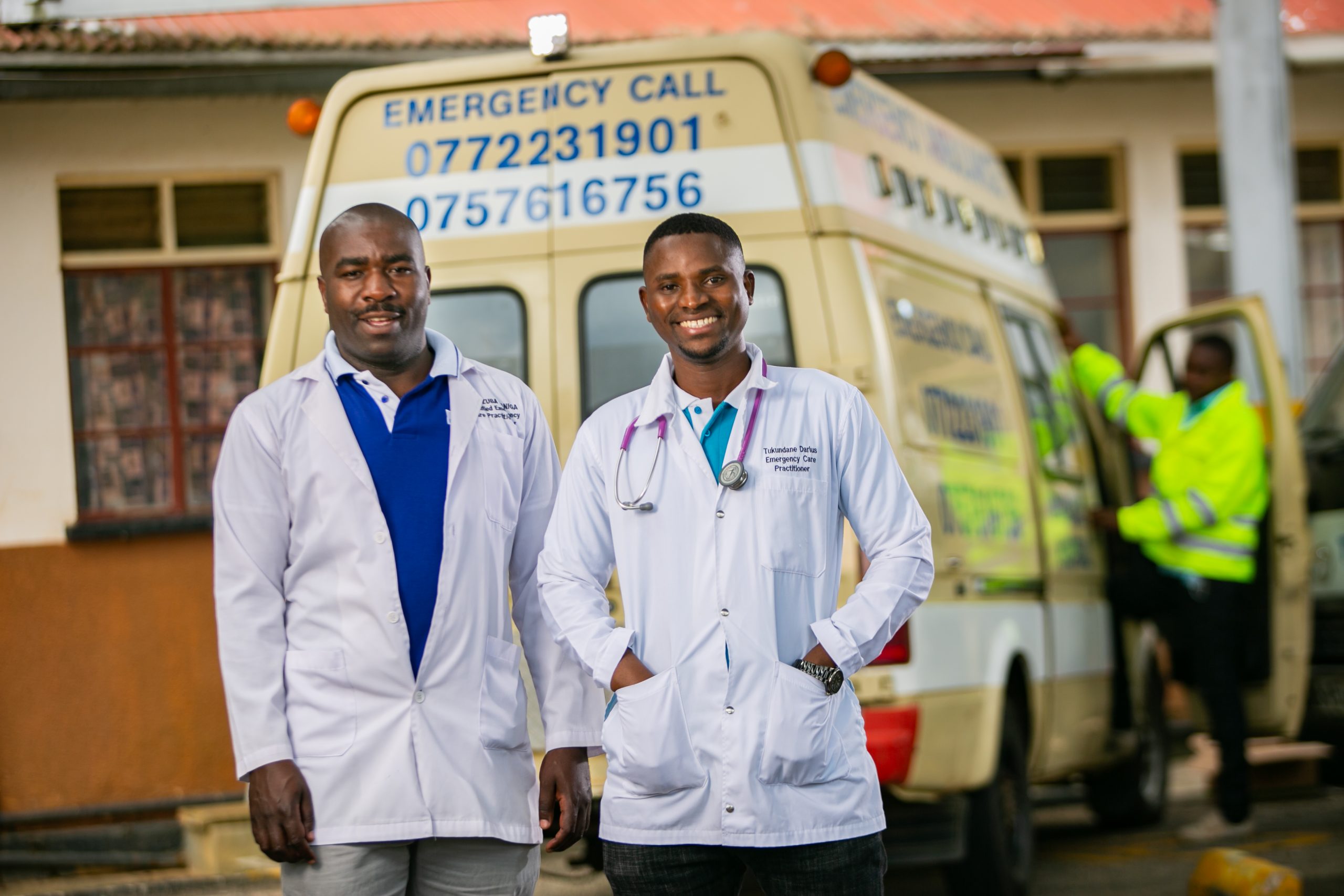
Nyakibale Hospital, Rukungiri
The Hospital has made steady improvements recently to both the quality and the accessibility of the services it offers. But prior to GECC’s work, the Nyakibale Hospital Annual Report found that eight of the ten leading causes of death in the hospital’s patient population were treatable with quality emergency care and resuscitation. Among these causes of death were severe malaria, pneumonia, and trauma.
MASAKA REGIONAL REFERRAL HOSPITAL, MASAKA DISTRICT
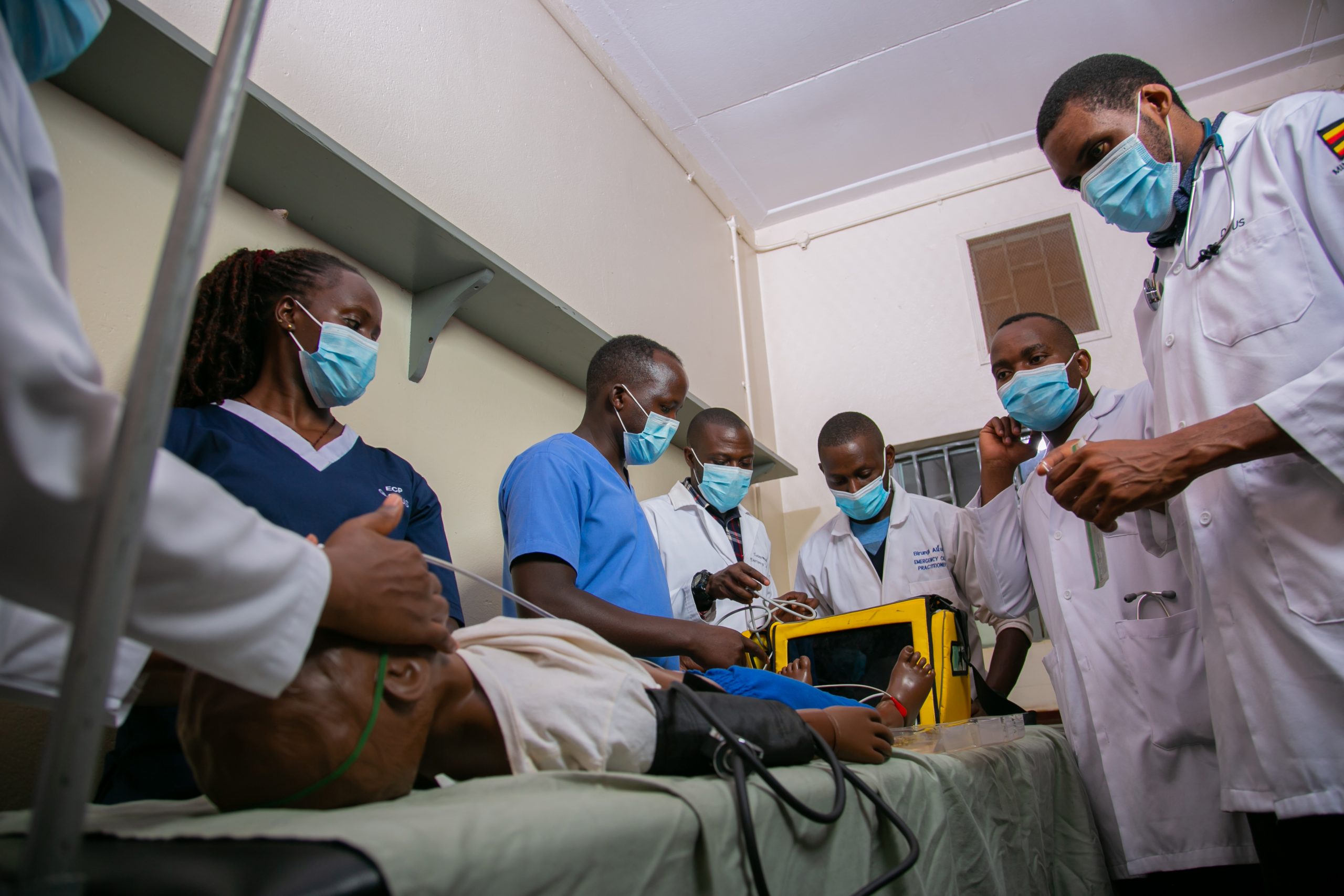
Masaka Regional Referral Hospital
Masaka Regional Referral Hospital is one of Uganda’s ten major public hospitals located in the city of Masaka in the Masaka District approximately three hours from Kampala and four hours from Nyakibale. In September of 2017, GEC, in conjunction with Masaka Hospital and Mbarara University, implemented Uganda’s first two-year Diploma training program for Emergency Care Practitioners.
MBARARA UNIVERSITY OF SCIENCE AND TECHNOLOGY, MBARARA DISTRICT
PHYSICIAN’S LEVEL MASTER’S PROGRAM IN EMERGENCY CARE
GEC would like to congratulate the members of the Departments of Medicine, Critical Care, and Anesthesiology at Mbarara University of Science and Technology (MUST) in Mbarara, Uganda for implementing the country’s first Master’s program in Emergency Medicine for physicians at their medical school in September 2017. This collaboration will create a new specialist physician for Uganda, the Emergency Physician, who will be able to work in and supervise ECPs in national and regional referral EDs, and function as educators and quality supervisors for district ECP staffed EDs. GEC is pleased to be an active partner and participant and funder of this program.
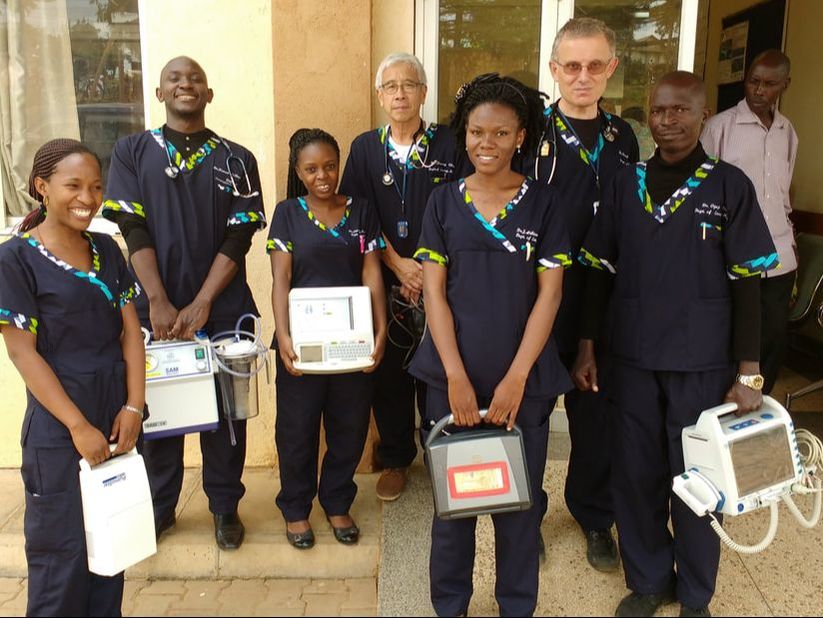
Masaka Regional Referral Hospital
COMMUNITY HEALTH WORKER EDUCATION PROJECT
GEC built Uganda’s first Emergency Department in rural Uganda and created a groundbreaking training program in resource limited emergency care. However, most people in the rural hospital catchment are unaware of these services and have little knowledge about which conditions require medical or traditional care, and no referral criteria for clinics exist. Efforts to promote access to these quality services are as important to saving lives as training actual emergency providers.
GEC’s Emergency Care Practitioner (ECP) program utilizes a train-the-trainer model to teach nurses to become independent providers of emergency care in resource-limited, rural settings. GEC believes this same method can be applied to the prehospital arena. Our PER project seeks to increase the community’s utilization of the ED and strengthen the prehospital emergency care system to create the ‘front side’ of the emergency care continuum.
One project portion delivers outreach education to the lay-community on recognition of acute illnesses and utilization of available health services. A parallel component conducts workshops for outpatient clinics on the early recognition of emergencies, appropriate management of patients, and referral of sicker patients to the ED. Future plans include the utilization of SMS auto categorization technology to create two-way communication between the ED and both the community and clinics. Like all of GEC’s programming, the PER project (financial, administrative, clinical, and educational) has sustainability and scalability as guiding principles and was created through local and regional stakeholder efforts.
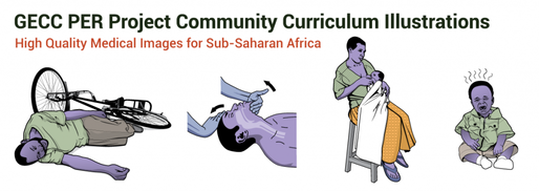
As part of the Prehospital Education Project (PER), we created a set of illustrations for use in our educational materials. The images are appropriate for first-aid and health promotion in Sub-Saharan Africa. You can download these files in vector format (.pdf, 6.2 MB) by clicking the link below. The illustrations are protected under a Creative Commons noncommercial-attribution-share-alike license; share them freely with anyone who may find them useful and credit GEC somewhere in your work if you do use the images. Thanks!
ONGOING PROJECTS
The following are ongoing projects of Global Emergency Care:
- 72 hour patient outcomes under ECP model
- Train the Trainer model efficacy assessment
- Cost Effectiveness of the ECP model
- Trauma and Injury Surveillance/ GIS analysis
- Nurse-led procedural sedation safety study
- Nurse-led ultrasound efficacy study
- Analysis of Malaria outcomes
- Toxicology organophosphate case studies
- Domestic violence prevalence and outcomes
- Community health seeking behaviors
- Acute care patient transportation
- HIV prevalence/ screening and referral from ED outcomes
- Cell phone penetration in rural districts/ utilization for followups